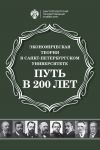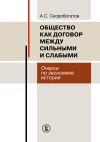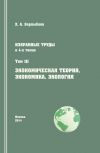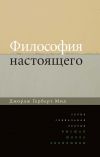Текст книги "Экономические теории в пространстве и времени"

Автор книги: Коллектив авторов
Жанр: Экономика, Бизнес-Книги
Возрастные ограничения: +16
сообщить о неприемлемом содержимом
Текущая страница: 5 (всего у книги 25 страниц) [доступный отрывок для чтения: 8 страниц]
Заключение
Отмеченное во введении парадоксальное место У. Петти в истории экономической теории нашло отражение и в работах самого, пожалуй, известного специалиста в этой области за последние несколько десятилетий – М. Блауга. В своем главном труде (Blaug, 1985) он упоминал «политического арифметика» мельком, ни разу не удостоив даже отдельного абзаца. Зато в галерее «ста великих экономистов до Кейнса» рассыпался в похвалах автору «ослепительных работ», который «генерировал идеи, касающиеся всех аспектов экономики» и оставил «настоящий рог изобилия терминов и концепций, которые стали преобладать в экономической мысли в течение последующих трех веков» (Блауг, 2005. С. 236–237).
К этой характеристике можно смело добавить и еще один век – нынешний, а к длинному перечню новаций Петти – содержащийся в «Политической арифметике» протоанализ конкурентных преимуществ наций. В «голландский век» капиталистической мир-системы Петти разглядел как последствия расхождения в ней структурных позиций, так и преимущества диверсификации национальной экономики, обеспечивающие перевес отраслям с возрастающей отдачей. Остается отразить этот протоанализ в новых курсах по истории экономических учений и в преамбулах к новым ретроспективным исследованиям национальной конкурентоспособности.
ЛИТЕРАТУРА
Арриги Дж. (2006). Долгий двадцатый век. Деньги, власть и истоки нашего времени. М.: ИД «Территория будущего».
Бибиков П.А. (1869). Библиография замечательнейших сочинений по политической экономии // Бланки Ж.А. История политической экономии в Европе. Т. 2. / Пер. П.А. Бибикова. Спб.: Тип. И.И. Глазунова.
Блауг М. (2005). Сто великих экономистов до Кейнса. СПб.: Экономическая школа.
Бродель Ф. (1988). Материальная цивилизация, экономика и капитализм. Т. 2. Игры обмена. М.: Прогресс.
Валлерстайн И. (2001). Анализ мировых систем и ситуация в современном мире. СПб.: Университетская книга.
Валлерстайн И. (2015). Мир-система Модерна I. Капиталистическое сельское хозяйство и истоки европейского мира-экономики в XVI веке. М.: Ун-т Дмитрия Пожарского.
Валлерстайн И. (2016). Мир-система Модерна II. Меркантилизм и европейская консолидация европейского мира-экономики (1600– 1750). М.: Ун-т Дмитрия Пожарского.
Вебер М. (2001). История хозяйства. Город. М.: «Канон-Пресс Ц»: «Кучково поле».
Виппер Р.Ю. (1944). Иван Грозный. М-Л.: Издательство Академии наук СССР.
Дэвидс К. (2019). 450 лет лидерства: Технологический расцвет Голландии в XIV–XVIII вв. и что за ним последовало. М.: Альпина Паблишер.
Емельянов С.В. (2001). США: международная конкурентоспособность национальной промышленности. М.: Международные отношения.
Ингрэм Дж.К. (1897). История политической экономии. М: К.Т. Солдатенков.
Крижанич Ю. (1997). Политика. М.: Новый Свет.
Левитский В.Ф. (1914). История политической экономии в связи с историей хозяйственного быта. Харьков: тип. А. Дарре.
Ман Т. (1935). Богатство Англии во внешней торговле, или Баланс нашей внешней торговли как регулятор нашего богатства / Меркантилизм: Сборник / Под ред. И.С. Плотникова. Л.: Соцэкгиз.
Мануфактура (1978) / История в Энциклопедии Дидро и д’Аламбера / Пер. и примеч. Н.В. Ревуненковой / Под общ. ред. А.Д. Люблинской. Л.: Наука.
Маркс К. (1959). К критике политической экономии // Маркс К., Энгельс Ф. Сочинения. Т. 13. М.: Политиздат.
Маркс К. (1960). Капитал. Т. 1 // Маркс К., Энгельс Ф. Сочинения. Т. 23. М.: Политиздат.
Маркс К. (1962). Теории прибавочной стоимости // Маркс К., Энгельс Ф. Сочинения. Т. 26. Ч. I. М.: Политиздат.
Мэддисон Э. (2012). Контуры мировой экономики в 1-2030 гг. М.: ИИГ.
Петти У. (1940). Экономические и статистические работы. Т. I-II. М.: Соцэкгиз.
Плотников И.С. (1935). Меркантилизм и его разложение / Меркантилизм: Сборник / Под ред. И.С. Плотникова. Л.: Соцэкгиз.
Портер М. (1993). Международная конкуренция. Конкурентные преимущества стран. М.: Международные отношения.
Райнерт Э. (2011). Как богатые страны стали богатыми, и почему бедные страны остаются бедными. М.: ИД ГУ-ВШЭ.
Сандмо А. (2018). Экономика – история идей. М.: Институт Гайдара.
Топер С. (1929). Вильям Петти (Жизнь замечательных людей). М.: Московский рабочий.
Фриз П.Г.Г. (1998). Социально-экономическая структура европейского общества и ее изменения в XV–XVIII вв. // От аграрного общества к государству всеобщего благосостояния. М.: РОССПЭН.
Blaug M. (1985). Economic theory in retrospect (4th ed.). Cambridge, New York: Cambridge University Press.
Brook T. (2007). Vermeer’s Hat: The Seventeenth Century and the Dawn of the Global World. London: Bloomsbury Press, Profile Books.
Dong-Sung Cho & Hwy-Chang Moon. (2013). From Adam Smith to Michael Porter: Evolution of Competitiveness Theory. Singapore: World Scientific.
List F. (1856). National System of Political Economy. Transl. from the German. Philadelphia: Lippincott and Co.
Montchrétien A. de (1889). Traicté de l’oeconomie politique, ed. Th. Funck-Brentano. Paris, Librairie Plon, E.Plon, Nourrit et Cie.
Negishi A. (1989). A History of Economic Theory. Amsterdam. N.Y.; Oxford; Tokyo: North-Holland.
Petty W. (1899). The economic writings / Еd. Ch. H. Hull. Vol. 1. Cambridge: Cambridge University Press. /oll.libertyfund.org/titles/petty-the-economic-writings-of-sir-william-petty-vol-1.
Roll E. (1957). History of Economic Thought. Р. London: Faber & Faber.
Roncaglia A. (2005). The Wealth of Ideas. A History of Economic Thought. Cambridge: Cambridge University Press.
Schumpeter J.A. (1954). The History of Economic Analysis. New York: Oxford University Press.
Smith A. (1776). An Inquiry into the Nature and Causes of the Wealth of Nations. Vol. II. London. Printed for W. Strahan and to T. Cadell in the Strand.
Templ W. (1705). Observations upon the United Provinces of the Netherlands. 7 ed. Corrected and augmented. L.: J. Tonfon. books.google.ru/books?id=_Su2ogKHsUEC&pg=PP9&hl=ru&source=gbs_selected_pages&cad=2#v=onepage&q&f=false.
Weststeijn A. (2012). Commercial Republicanism in the Dutch Golden Age: The Political Thought of Johan & Pieter de la Court. Leiden. Boston: Brill.
Глава 4
From Karl Menger to Charles Menger at Last: The (very) long delayed Reception in France of the Works by Austrian School Founder Carl Menger
G.J.-P. Campagnolo
Father of the “Austrian” Marginalist revolution and founder of the so-called “Austrian School of economics”, Carl Menger (1840–1921) had a mixed reception in different periods of French economics. Despite the fact that Menger’s ideas were acknowledged and welcomed around 1900, his works were not made available in French. The grounding stones of the Austrian school were two major works by Menger. They were translated in many of the languages of science, yet not in French for more than a hundred years, indeed almost a century and a half. At last they were published in French in the decade 2010–2020: (1) Menger’s methodological treatise, the Investigations (1883) was fully translated and commented in 2011; (2) his theoretical treatise, the Principles (1871), was fully translated and commented in 2020 – in both cases, by the author of this paper.
Why it is so? I have already partly answered elsewhere. A key point about the French context, in comparison with other countries, is that Austrian ideas found there a less than warm welcome. Early reception was followed by almost a century of oblivion and no attention was paid to a major stream of thought whose supporters bypassed France in their exile from Mitteleuropa to the UK (for instance, the London School of Economics) or to the US (NYC, the Midwest or the Deep South). France remained among the major countries of science the only one not to have a translation in their language: one century after he deceased and one and a half century after his original masterwork, we may at last speak of Charles Menger.
Introduction
Proceeding from a chronology of the reception in France of the works of Carl Menger (1840–1921), the following essay shall present:
– firstly, Menger’s ideas were welcomed before World War I, and how a translation of his works was called for by French economists, yet this call remained unanswered;
– secondly, how the Interwar, War and Postwar then passing, no renewal of interest happened before the contemporary period. As the relay was taken by the “Austrian school” from its Mitteuropa original grounds to a new land of election in the United States, what “American-Austrian disciples” disciples passed on was quite different from the genuine brand.
As the arts and sciences flourished in 1900 Vienna, they were also received in France. With the end of the Austro-Hungarian Empire (defeat in WWI in 1918) and the march towards the end of Austria altogether (the Anschluss in 1938), during the Interwar Austrian exiles bypassed France on their path from Europe to America. This explains the first reception and then the lack of impact, and the entire neglect that followed. And when Austrian economic made their way, they were rejected. This was partly the result of a total lack of translations of the works by Menger. Hence a long rejected tradition of Austrian economics shall find a new understanding as translations come at last during the decade 2010–2020, the Investigations into the Method in 2011 and the French translation and first publication of the annotations of the 1871 Principles of Economics in 2020, that is to say almost 150 years after the original publication.
From Menger’s death in 1921, a time period when the defeat of Austria in World War I meant the end of the Habsburg Empire, a century has passed. During that century, there were indeed less and less “continental” Austrians – and a moment came when US-born school members made it sensible to speak of an “Austro-American school” as a synonym for “Neo-Austrian school”. This is also where Menger’s influence might have faded, vanished, or at least have been tarnished for good. It is on the contrary from Vienna and in a context of theories born in “old” Europe that Menger had “fathered” and “grand-fathered” disciples in a school whose denomination passed to posterity by the name of its original place.
This essay starts by recalling an astonishing letter by Charles Rist for the Jubiläum of Menger: Rist regretted the lack of a translation into the French language. That was in 1909. The request was answered in the 21st century, and through efforts in the archives, more material has been added. This is what shall be presented in the following pages.
Early reception of Menger in France
The need for a translation of Menger’s Works
The early reception of the ideas of Menger was somehow productive in the French academia despite the lack of a translation into the French language. Indeed, as a witness of this situation, let us quote the following letter by Charles Rist, dated “26 octobre 1909” and sent to the Organizer of the Jubilaümfest by Rist from his Montpellier residence (“Villa Pauline, Chemin de Nazareth”). It goes like that (my translation from the French):
“Monsieur /Sir […]
It is a great honor to be associated with Professor Karl [sic] Menger jubilee. It is a joy […]
One may truly say that a new era of political economy as a science has been opened by M. Menger’s Grundsätze der Volkswirtschaftslehre. Not only has M. Menger given a fruitful view, whose triumph he could himself see, but he also gave the pitch and provided a new style within economic debates. He saved economic theory from tedious and ordinary talks in bringing a lofty philosophical tone, together with intellectual vigor which has become the brand of his own school and contributed much in bringing him the liking and admiration that his school has won nowadays. I myself gladly acknowledged somewhere else2828
Rist refers to Histoire des doctrines économiques, co-authored with Charles Gide (Gide and Rist, 1909).
[Закрыть] my very high opinion of his Untersuchüngen [sic] über die Methode der Socialwissenschaften, a volume that ranks amongst the classics, and whose role in the literature can only grow thereafter […]
May I, however, express one regret? It is the fact that no volume by M. Menger has not yet been translated into French. I am convinced that the translation of the Grundsätze would bear as a consequence in France a major leap forward in economic ideas. Many readers who are reluctant to follow mathematical formulae, like those expressed by Stanley Jevons or Léon Walras, would do so much more willingly with the beautiful deductive sentences formulated in M. Menger’s book in his strong and appealing manner. Would not M. Menger provide the chance to remember his jubilee by allowing a French translator to undertake such a task, most worthy for science? This is the wish I dare here to express. I would be most grateful to you, Sir, if you could kindly convey it to M. Karl [sic] Menger […]
Until very recently3030
Actually a few days ago at the time of re-writing this paper for publication in the present volume.
[Закрыть], this missing piece in French economic publications, a full translation of Menger’s works, remained a shame to French academia. The lacuna is now fulfilled for both pillars of the Mengerian doctrine, which Rist equally mentioned as missing to French-language readers. In 2020, at last, the situation has changed as follows:
– the major methodological opus by Menger, his Unter-suchungen of 1883 (Untersuchungen über die Methode der Socialwissenschaften und der politischen Ökonomie insbesondere, published in Leipzig by Duncker & Hum-blot: the Investigations into the Method) in its full French translation was completed in 2011.3131
Gilles Campagnolo achieved that work for Editions de l’EHESS in 2011, that is to say 128 years after the original publication (!) The other major volume by Menger, his Grundsätze of 1871, the Principles of Economics, translated by the same, is in print at the time the reader has this article in his/her hands. He translated other works, like the 1892 articles on money (Menger 1892a/2005) (Menger 1892b/2011b). See the last section in this paper.
[Закрыть]– And the main theoretical opus, the Grundsätze der Volkswirtschaftslehre (Vienna, published by Wilhelm Braumüller Principles of Economics) of 1871, is now at last available, from February 2020, after one and a half century of delay after the original text (!)
Both publications are by the author of the present essay. Comments are numerous and it is impossible to sum them up in the present paper. However some important features should be stressed: like the fact that the manuscript notes in the copies of the 1871 edition that Menger owned are here used to better discuss Menger’s wish of bringing out a second edition of his Principles. After he died, his son carried on this task in the 1923 edition. But, as is explained in the new French edition, there would thus be some doubts as to whether the original views by Menger were guaranteed. The long delay for a translation in the context of the French language gave the advantage to publish these notes alongside the translation. As this edition contains manuscript annotations by the author, their input may seem critical to further commentators since previously published material did not contain that information3232
Although one must quote the work done by historian of utility theory Emil Kauder, as well as by some Japanese erudite scholars, like Kiichiro Yagi and some disciples – see (Hagemann, Nishizawa & Ikeda, 2010).
[Закрыть].
There were only two texts available in French in Menger’s times – and for a century:
• «Contribution à la théorie du capital», adapted by Charles Secrétan from the essay Zur Theorie des Capitales, and published in the Revue d’économie politique, 1887/2, pp. 577–594.
• «La monnaie, mesure de valeur» initially published under the name Charles Menger, in the Revue d’économie politique as well (1892/6, pp. 159–175)3333
This paper is hard to find nowadays. I reprinted it as an appendix to my biography of Menger (the only existing in French of the Viennese economist (Campagnolo, 2008a, pp. 206–220). The Revue d’économie politique will be presented in more detail further below.
[Закрыть].
Despite the lack of any other translation, Menger actually met with some non-insignificant relative success in France while he was alive. This was partly due to fame he already obtained. It was possibly not foreign to strong feelings in France against anything “German” after France that was defeated in 1870 against the same Bismarckian Prussia, whereby France lost Alsace-Lorraine to a new Second Reich proclaimed in the Galerie des Glaces of Versailles palace. Had not Austria also fell victim to Prussian troops in 1866 at Königgrätz? Austrians surely did not like the Hohenzollern crown. While not all Frenchmen saw differently Berlin and Vienna (moreover united in the Triple Alliance), the intellectual elites were sensitive to this and to influences from Vienna in so many arts and sciences ‒ the Secession, the new trends in architecture by Loos, literature by Musil, painting by Klimt, Kokoschka, Schiele, music with Schönberg, but also logic, philosophy, physics, and so on.
Austria’s capital, Vienna, was the “Paris of Central Europe”. Parisian elites acknowledged they had a special relationship, to some extent. Austrians resented being subordinate to a Prussian-led German Empire. At the Austrian court may have felt more sympathy towards the French, whom they regarded as Catholics like themselves, and also saw as more cultivated than the Germans. Austrian intellectual elites fought against German influence in the arts and sciences – in economics, the Methodenstreit (“Dispute over the methods”) can also be seen as part of this, as Menger fought Berlin Academia master in economics, Gustav von Schmoller. Thus between France and Austria, an ambivalent relationship prevailed. And to have Menger in the French language was a feast long awaited.
The recognition of the founder of the Austrian school of economics by the French showed best in the recruitment by the “Académie des sciences morales et politiques”, as Menger was made its international corresponding member for the German-speaking world. The “Institut de France” is the highest French academic body. When it needed to replace previous holder Wilhelm Roscher (deceased in 1894), Menger was chosen for the German-language section of “Political economy, statistics and finance”. This was highly symbolic: Roscher was the founder of the German Historical School in the 1840s and surely expectations were high that Schmoller, who presented himself as his legitimate successor, would be succeeding Roscher. As, in the 1880s Menger and Schmoller fought the famous “Dispute over the Methods”, the fact that Menger was chosen was a sign against the “Younger” Historical School of Schmoller. Menger respected more Roscher indee, to whom he had paid tribute to Roscher in the dedication of his Principles of Economics, in 1871.
Nonetheless, there was more than a diplomatic strategy of science involved and Menger was recognized for his theoretical input in economics as a pure theory. Menger had indeed the wish to set such a theory, as shows in his notes as he modified the title-page of his work into allgemeine theoretische Wirtschaftslehre3434
See title-page note *2, p. 260, in the edition of Menger 1871/2020 by Campagnolo, who also comments on this.
[Закрыть]. However, as Rist had pointed out, almost none of Menger’s works, whether under the title of their first publication or the one Menger had wished to see republished, could be read in French. The key-point and one that explains why speaking of a rejection of Menger and the Austrian school of economics in France makes sense is that this situation would last for more than another hundred years!
French readers of Menger’s works in the original German around 1900
As a consequence of those circumstances, those French scholars who could not read German but who would be interested by Menger would get used to reading his major works in translation. One reason why Menger still met some success is that, before WWI, the interested scholars would often read German, while this would change later on, and especially after WWI and even more WWII, when English would come to dominate. But this was not the case then, and both the theory and the methodology were published in languages of science like Italian – and Russian3535
There were translations in most of the languages used in the scientific world and Russian was naturally one of them. The 1871 Principles were published as Основания политической экономии (Osnovania politicheskoï Economii, in the translation by G. Tiktin and I. Abesgous, edited by R.M. Orjentskov in Odessa in 1903. Recently, the Collected Works included a revised translation Карл Менгер. Избранные работы (Moscow, Территория будущего, 2005). In 1992, in the volume Австрийская школа в политической экономии: К.Менгер, Е.Бем-Баверк, Ф.Визер, large passages were republished using the 1903 version, presented and commented by Vladimir S. Avtonomov (Moscow, Ed. Economica).
[Закрыть], while they were not in English before the 1950s.
The Italian versions, translated early in the twentieth century, were of quite good quality that they served well the community, as long as no translation was available in English, that is to say until 1951 (for the Principles of 1871)3636
Principii fondamentali di economia, Imola, 1909 is a translation of the Grundsätze of 1871. A newer version was done as Principi di economia politica in Turin (UTET, 1976). The 1923 edition as well was translated (Principii fondamentali di economia politica, Bari, 1925) whereas it still today does not exist in English.
[Закрыть]. French economists in general were then trained mostly in English among any other foreign language and they would read Menger from then on in the English translation of the Principles by Hoselitz & Dingwall, (1871/1951) and of the Investigations by Nock & White (1883/1963/1985). I would argue (as I did in presenting my translation3737
Campagnolo Gilles, “Historique des éditions” (A Presentation of the Editions of Menger’s Principles), in Campagnolo/Menger (1871/2020, pp. 189–238): see in particular, pp. 194–199.
[Закрыть]) that it would have served better French economists to keep using the Italian translation – as long as no French one was available. In any case, any double translation worked as a double screening (from the German to another language and reading in this language by French scholars), bringing much confusion in the comments by non-German-reading French social scientists and economists. Often an original German concept was just altogether lost in translation, with misunderstandings so numerous that they still exist to this day and impact scholarship in unfortunate ways3838
Those who use the English version only were as a matter-of-fact ill-served. That was before there exists French editions. Also the English versions of the Principles (Menger, 1871/1951) and the Investigations (Menger, 1871/1963) were but very little corrected in following reeditions (respectively in 1981 and 1985).
[Закрыть].
But around 1900s, the circumstances that Rist indicated as dearly to be wished for were somehow less of a hindrance as they would become later on. There were more young scholars trained in the “language of the enemy”. As far as those French scholars were concerned, only a few were involved and interested in discovering and uncovering Menger’s views but those ancestors who read German around the 1900s may tell us something that later coming scholars would not – we shall thus discuss more this first period of a reception that appeared as short-lived but indeed productive.
French so-called “liberal” economists had played a major role in nineteenth century French academic landscape, notably through their journal, the long-lived and respectable Journal des économistes. The latter was mostly focused on French erudition and clearly supported the ruling classes. That, plus the criticisms it often received in this respect, induced some younger French scientists to found a new journal, the Revue d’économie politique. The Revue was more oriented toward innovative theories and the international context of science. They invited foreign contributors and soon had a growing audience – as the French language was then, together with German and both more than English, used in the world of science.
Readers of Menger’s works were mostly from this new generation of thinkers and authors, educated either in the French elite school known as “Grandes écoles” (like the École Normale Supérieure and the École Polytechnique) or in the new Departments of economics opened within Law faculties by a decree of the Third Republic (established in 1870 and consolidated in 1876), with the intent of revitalizing Republican spirit and social concerns.
Menger had been critical of earlier French nineteenth-century economics that he had read3939
His Nachlass shows this well. I examined his archives and personal library collections at Hitotsubashi University in Japan, and at Duke University, North Carolina, where they are located. Most French liberal thinkers after Jean-Baptiste Say advocated free trade for its own sake. Menger was dissatisfied with such propaganda (see Campagnolo, 2009 – in English: “Origins of Menger’s Thought in French Liberal Economists”, Review of Austrian Economics; and in French: Campagnolo, 2008c, pp. 139–198).
[Закрыть]. Menger did not approve of advocating causes and added comments to barbed remarks between Say and David Ricardo, showing both his deep interest in Say and his generally unfavorable views on the wording by Say’s heirs. More often Menger was critical of propagandists who, like free-trader Frédéric Bastiat, for example, supported landowners and became the champions of the privileged class. To plea against the State is not a goal in itself, it all depends on economic theories. And the attitude of many French liberals was just as wrong just as that of most German advocates of the Prussian state from within the famous Historical school of economics. Menger clearly rebuked the advocates of a cause rather than the champions of science4040
Menger called them all Advokaten : Kommunisten (communists) supporting the proletariate, Kathedersozialisten supporters of a strong interventionist unified German state, Freih ndler whose arguments rehashed those of the Manchester school without regard to the French, German or Austrian effective conditions.
[Закрыть].
This is not to say that sometimes Menger would not be laudatory of the French, like Count Pellegrino Rossi (actually an Italian exile) whose views on the goal set for economics as a whole he regarded as a true development inasmuch as it extolled following the cogs and wheels of voluntary material exchange between human agents4141
Rossi had succeeded Say at French highest educational institution, the Collège de France. Menger writes in many places « sehr wichtig » and « sehr richtig » with regard to views expressed by Rossi. Menger notably stressed the following: “If one could follow the thousand vicissitudes happening on markets, the contracting parties and strictly analyze their stands, if one could weigh so to speak all needs, one would really discover the true solution of the economic issue”, manuscript note in Menger’s own copy of his Grundsätze. Menger quotes the excerpt in French in the original (on the inset facing page 108 of the original: see end-of-chapter notes *208 and *209, pp. 505–506 in Menger 1871/2020 edited by Campagnolo).
[Закрыть].
Hence, despite the lack of translations, a French readership of Menger’s works developed within some of the best young thinkers educated in the new frame provided by Faculties of Economics and the Écoles, especially those students supervised by tutors like the École Normale Supérieure main librarian, Lucien Herr who professed first of all to start and read in depth German-language social sciences in the original. Economics and social sciences were then close to philosophy, social philosophy or “economic philosophy”. Those students would later fill the Academies and honor Menger. Yet they did not translate, as Rist pointed out in 19094242
This was all the more regrettable as writings by Menger’s opponent, Schmoller, were indeed translated, especially at publishing house Giard et Brière. For instance, a Miscellanea volume titled Politique sociale et économie politique : Questions fondamentales was translated by M. Pollack in the “Bibliothèque internationale d’économie politique” in 1902.
[Закрыть].
Amongst members of the newer generation who would access the original text by Menger and spread the word, let me mention here three promising young intellectuals: Élie Halévy (1870–1937), Charles Rist (1874–1955) (quoted above for his 1909 letter) and François Simiand (1873–1935).
All three were born shortly after the French were defeated at Sedan and they belonged to a generation that marked French intellectual history, in particular in defending Dreyfus4343
That was the « generation of men who were around forty in 1900 » as French poet and essayist Charles Péguy described them in Notre jeunesse (Our Young Age).
[Закрыть]. Their vigorous stand for justice was grounded in their staunch Republican views, in contrast with senior economists who often still favored a constitutional monarchy, as well as in their interest in the “social question”. All three young men had started with studies in law or in philosophy before they turned to economics, where they sought solutions to improve the first wave of social reforms in France in the 1900s4444
Years after the German programs, improvement for workers were enacted in France around the first laws implementing « social insurances », retirement benefits and protection against industrial accidents and illness as well as the right to unionize was granted (in French, with a strong anarcho-syndicalist flavor from the start).
[Закрыть]. All three young men became observers and actors in political life through their intellectual achievements. They found sources for their academic works as well as their ideas for a larger audience within public opinion in reading German-language economists, whom they largely quoted.
Later, their views would diverge: Halévy became a specialist of British history as well as of the development of so-called “radicalism” in philosophy4545
See his La formation du radicalisme philosophie (three volumes, 1901–1904) and L’Angleterre en 1815, published in 1912 as the first volume of his monumental Histoire du peuple anglais au 19ème siècle.
[Закрыть], as he had greatly favored Karl Marx’s writings on the Industrial Revolution. Simiand was inspired by German Historicism and cherished Schmoller. Rist cautiously read the Menger brothers: Anton, the younger of three brothers and Carl, the economist. Anton was an anti-Marxist socialist, and an advocate of enlightened consumerism, in charge of the first part on consumption in Austro-Hungarian imperial commercial law. He wrote The Right to the Whole Produce of Labour4646
Das Recht auf den vollen Arbeitsertrag in geschichtlicher Darstellung (1886, Vienna) was translated by H. Foxwell and published in London in 1900 became widely known sold in translation as well: besides English, in French (translated by Alfred Bonnet, prefaced by Charles Andler, published in Paris by Giard & Brière in 1900).
[Закрыть]. The name of the Menger was first famous through this socialistic opus and only later did ideas of Marginalism together with utility-value pervade the intellectual milieu, thus putting forth the name of Carl, who then superseded his brother Anton4747
The two brothers fell out with each other as the currents of thought in economic clearly split.
[Закрыть].
Labor-value still found support in doctrines based upon Neo-Ricardian and Marxist economic analysis while more innovative views on pure economics took time to emerge. In this perspective, readers of the German economists would often tend to assimilate the views they found in the enormous literature produced by German-language schools. This would create confusion, far from helping clarifying convergences between various theories. Diverging points would often wrongly go unnoticed, and for instance at the École Libre des Sciences Politiques, from 1902, Halévy’s lectures on Austrian Marginalism related it to traits of earlier classical political economy initiated by Adam Smith through spontaneous behavior4848
One could be tempted to extrapolate and cite Hayek’s “spontaneous order”. But Hayek related British Classical eighteenth century political economy through the notion, while Menger discarded Smith’s views (especially labor-value and the “inner propensity to exchange”) as the Principles show in chapter 4. On how Hayek used Menger’s edition, see pp. 227–235, in Menger 1871/2020 edited by Campagnolo.
[Закрыть].
In Halévy’s eyes, a strong argument in favor of the Austrian school was that the methodology raised against German historicism – resulting in the Methodenstreit during the 1880s – was synonym with scientific progress: facts were usefully acknowledged from a theoretical standpoint. However, one should never elude theory, which should necessarily be deductive and “pure” in the sense that Menger had pointed. Socialists would discard the toolbox of methodological individualism and favor the notions of class, nation or race. Halévy was more cautions, however rebuking French liberalism when it advocated peculiar, often petty interests instead of displaying the universality of science.
Among the generation of French readers of Menger around 1900 who were active in introducing marginalist views, the then revolutionary doctrine, I should also name Albert Aftalion.
Adolphe Landry and Étienne Antonelli4949
This was true, for example, with Adolphe Landry, who absorbed some views by Böhm-Bawerk to dispatch in the French literature of the time – we thank Heinz Kurz for this indication. Works by Landry are all in French.
[Закрыть]. They referred more often to works in French by Walras, or in French and in Italian, by Vilfredo Pareto (both in Lausanne, Switzerland, and with no academic positions in France) and in English by Alfred Marshall, Irving Fisher or, while he switched from German to English, to Joseph Schumpeter. The French orientation is anyhow less rich than in other European countries that were impacted by the Austrian school: though glorious, names of supporters are few, and their views mitigated with other concerns5050
That was true in other contexts than the French, for instance in Russia as shows as recent inquiry sourcing this evolution: François Allisson, Value and Prices in Russian Economic Thought, Abingdon, Routledge, 2015.
[Закрыть]. The case of Rist is probably one of the most illustrative.
An example of the reception of Menger’s views in France with Charles Rist
Rist was a member of the French Académie des Sciences morales et politiques. The Académie was aware of the innovative work achieved in Vienna to renew the methods of political economy. Neither the Classical Smithian-Ricardian perspective, nor the inductivist program of German historicism were seen as adequate to build a pure theory of economics. The Académie made clear this awareness in recruiting Menger, who was providing such a new frame with his marginalist reasoning. By choosing Menger as a corresponding member against Schmoller, French Académiciens chose Modernity and proclaimed it. Among them, economists Rist and E. Levasseur wrote (in French) personally to congratulate Menger while the Academy Secretary M. Block stated officially the decision (Block wrote in German)5151
Obviously a part of mere hostility towards Berlin was involved in the election, but the importance of the Austrian school to renew economic theory was acknowledged and archives indeed prove this: Menger’s paraphernalia are located at the Perkins Library, Duke University, section of Rare Books and Archives: Menger Papers. They were brought to the US by his son Karl (1902–1985) who fled the Anschluss in 1938 and then moved from Princeton to Duke in the 1990s. As mentioned previously and amply discussed in Campagnolo’s edition of the Principles, Menger’s own library had been sold by Menger’s widow to Japan in 1921 and is now located at Hitotsubashi University – while almost nothing original remains today in Vienna.
[Закрыть].
Moreover Unlike other Marginalists (Walras, Jevons) though, he was a subjectivist, and neither a collectivist (like Walras) nor a supporter of mere mechanisms (like Jevons). More honors had already befallen Menger in France: in 1897 he had been made a member of the Société Statistique de Paris, for instance. Menger’s correspondence shows, besides satisfaction, his concern for a wide audience of his theories over the world, including France, beyond building a specifically “Austrian” school. Menger read French and used it, as show manuscripts in his Nachlass.
His prestige in France, however, did not compensate the absence of a translation of his works, as Rist stressed in the letter quoted above. Rist himself was a product of this newer education implemented by the Third Republic with regard to Law faculties. Whereas economics had been a minor, Faculties of economics now would become autonomous. As Rist was mostly interested in the “social issue”, he wrote his two dissertations (compulsory at the time in Law) on industrial accidents and the workday of the laborer and hourly wages. Law concerns faded in his work in view of economic notions, as happened with the newly created Revue d’économie politique (1887) to counterbalance the Journal des économistes5252
Before 1914, Rist wrote in the Revue a column inspired by reformist thinker Raoul Jay and titled “Chronique ouvrière” (“The Laborer’s Chronicle”).
[Закрыть].
Правообладателям!
Данное произведение размещено по согласованию с ООО "ЛитРес" (20% исходного текста). Если размещение книги нарушает чьи-либо права, то сообщите об этом.Читателям!
Оплатили, но не знаете что делать дальше?








































